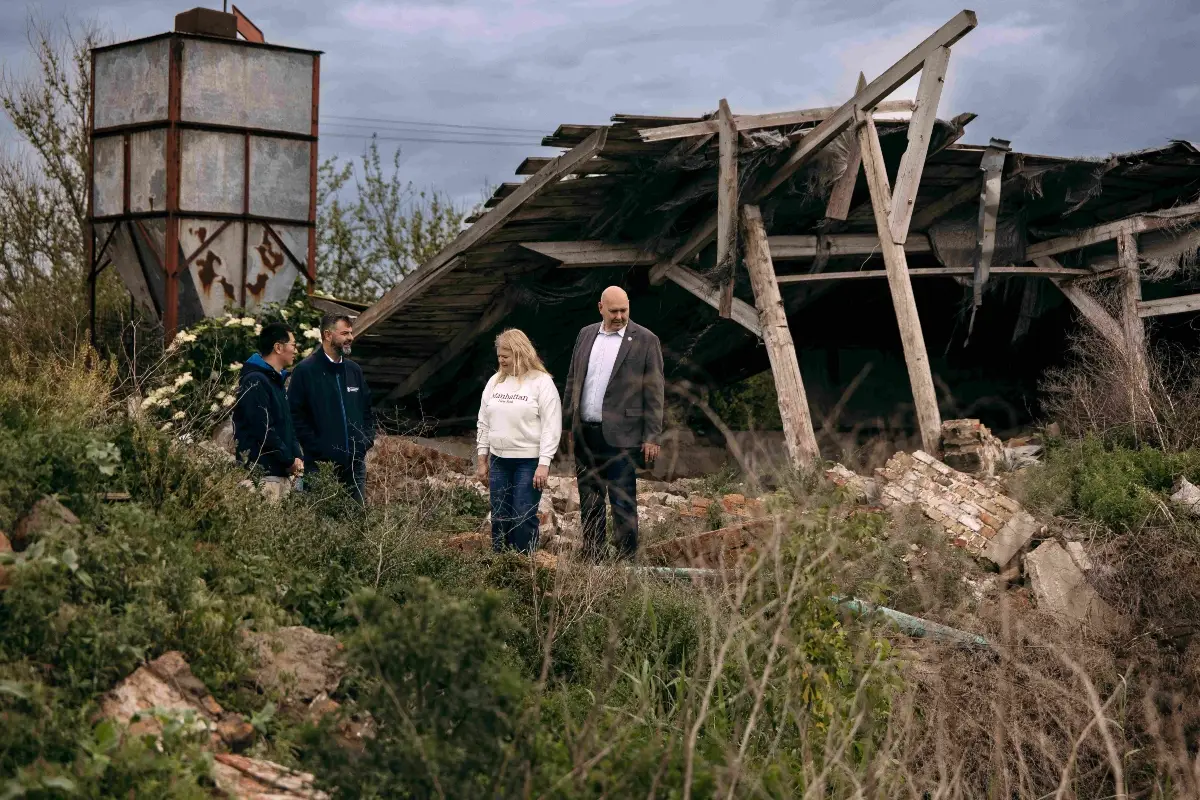
Ukraine. FAO: Farmers at risk of food security
UN agency appeals for rural population, also threatened by land contamination

With the ongoing war, many Ukrainian farmers and rural farming families are suffering from limited access to their land due to landmines and lack sufficient financial resources to purchase necessary agricultural inputs. This is what the Food and Agriculture Organization of the United Nations (FAO) has warned about the "endangered food security" in the country, signing an appeal for "urgent support" to the Ukrainian rural population.
"Meeting the needs of Ukraine's rural communities," FAO urges, "requires more than emergency assistance: it requires a continuous and well-coordinated response to support agri-food systems. The coming months will determine whether rural producers will be able to sustain production through the winter and into the following season.
Across the country, rural families—many of whom are elderly or headed by women—continue to rely on agriculture for survival. They grow vegetables, tend a single cow or a handful of chickens, and farm small plots of land, often under shelling, without reliable electricity, and with limited access to markets and supplies. What was once routine work is now a life-threatening issue in some regions.
"With war still affecting millions of people, rural communities on the frontlines remain among the most vulnerable and least supported. These families want to be able to provide for themselves. They want to stay on their land. And emergency agricultural support is an extremely effective means of enabling them to do so," said Rein Paulsen , FAO Director of Emergencies and Resilience, during his recent visit to Zaporizka Oblast, Ukraine.
According to the Fourth Rapid Assessment of Damage and Needs, conducted by the Government of Ukraine, the World Bank, the EU and the United Nations, the Ukrainian agricultural sector has suffered damage and losses amounting to $83.9 billion, with an additional $1.6 billion in the irrigation sector. Rural households and smallholder farmers bear a significant share of this impact and have been forced to adapt, facing soil contamination, labor shortages, rising input costs and power disruptions. Thousands of families remain without basic tools, inputs and services needed to sustain production and protect their livelihoods.
Since 2022, FAO has already supported over 250,000 rural families with vegetable seeds, animal feed, day-old chicks, cash and vouchers. Over 15,000 farmers have received seeds, temporary storage solutions and financial assistance. FAO has also worked with partners to survey mine-affected land, restore access to agricultural fields and support national monitoring and recovery systems.
Despite the scale of assistance already provided, much more is needed, as many rural families are at risk of being left behind. Without ongoing support, their ability to plant, harvest and recover remains fragile.
“This work is absolutely essential,” Paulsen stressed. “Agriculture is the fabric of rural society. It’s not just a way of making a living, it’s a way of being. And vulnerable rural families are resisting. They need support not just to survive, but to thrive and rebuild.”
Funding gaps continue to limit the full implementation of FAO’s Emergency Response and Rapid Recovery Plan for 2025-2026. Given the global funding gap, FAO calls on donors and partners to redouble their support for Ukrainian farming families, as their role in national food security, local economies and long-term recovery is indispensable.
EFA News - European Food Agency